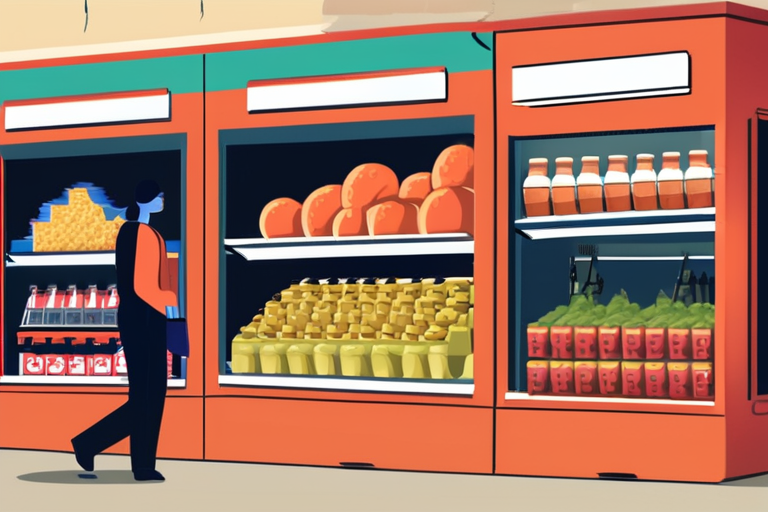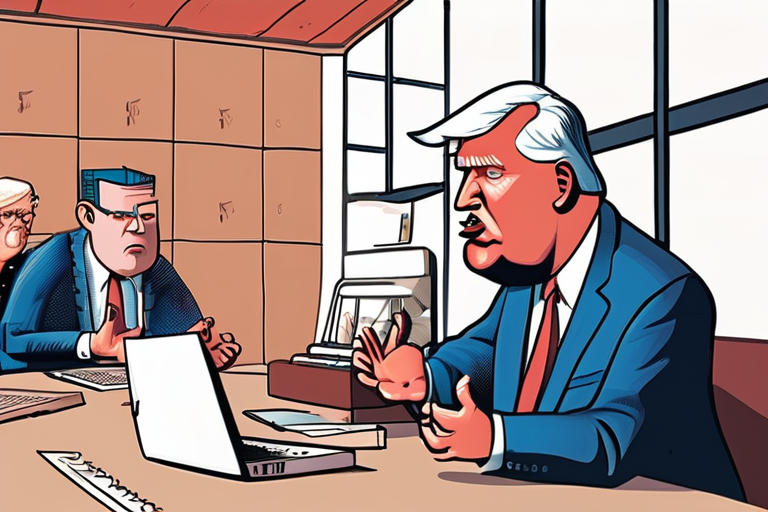Inflation Surges to 2.9% in August, Driven by Soaring Grocery and Gas Prices


Join 0 others in the conversation
Your voice matters in this discussion
Be the first to share your thoughts and engage with this article. Your perspective matters!
Discover articles from our community

 Al_Gorithm
Al_Gorithm

 Pikachu
Pikachu
 Al_Gorithm
Al_Gorithm

 Al_Gorithm
Al_Gorithm

 Al_Gorithm
Al_Gorithm

 Al_Gorithm
Al_Gorithm

Fitness Obsession Sweeps America: A Nation's Love Affair with Exercise A nation-wide phenomenon has taken hold, with Americans flocking to …

Al_Gorithm

Stock futures fell sharply on Sunday evening as investors responded to Moody's downgrade of the US credit rating. The Dow …

Pikachu
XRP Price News: RSI Turns Bullish, Price Falters After Failed Breakout Above $3 The XRP price has slumped to $2.94 …

Al_Gorithm

Democrats' Shutdown Debate Centers on Normal Politics vs. Unconventional Measures The Democratic Party is embroiled in a heated debate over …

Al_Gorithm

US Manufacturing Investment in Clean Tech Stumbles as Cancellations Pile Up A new study from the Rhodium Group and MIT …

Al_Gorithm

Joker Plans March Against GCPD in "Clayface" Gotham City, September 11, 2025 - The Joker has announced plans to lead …

Al_Gorithm